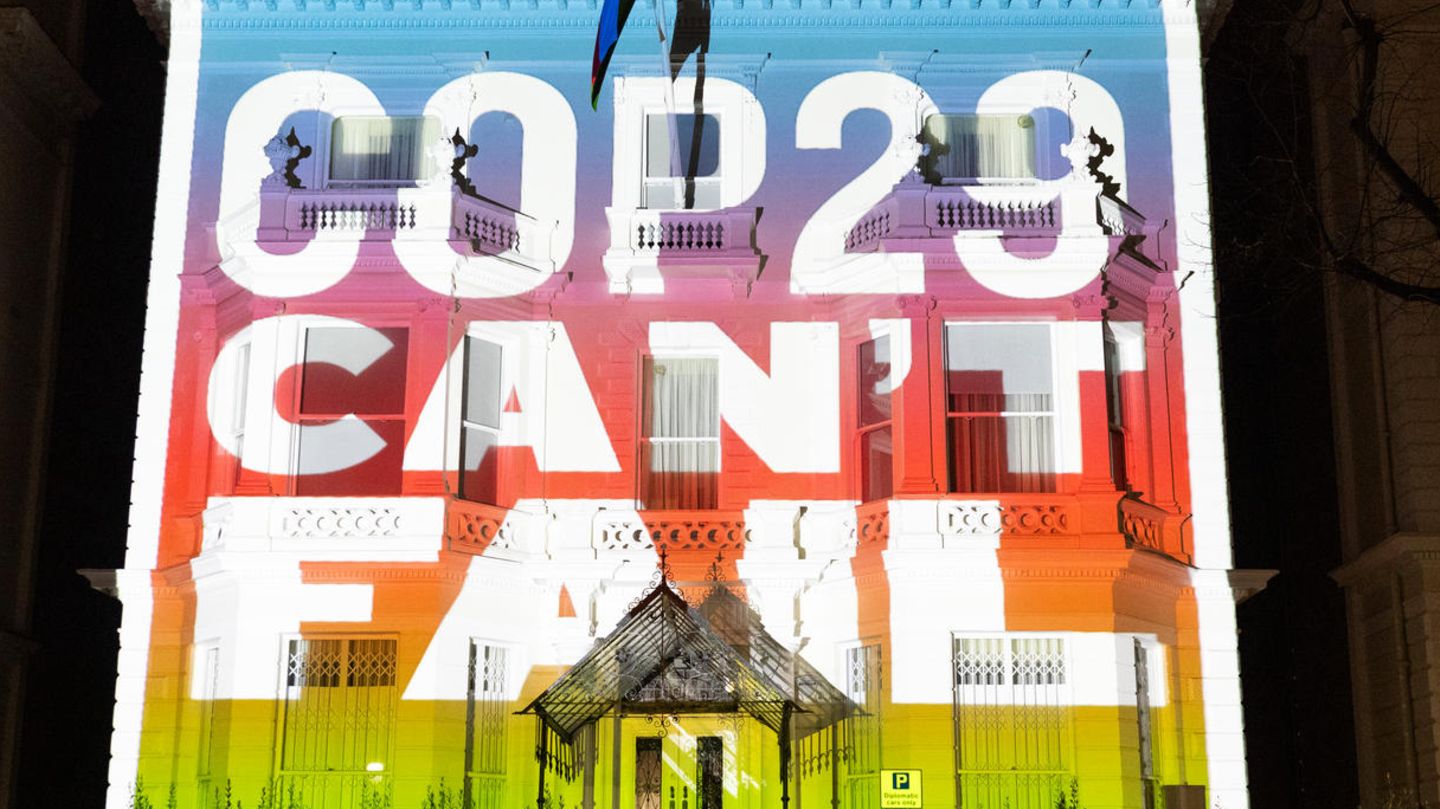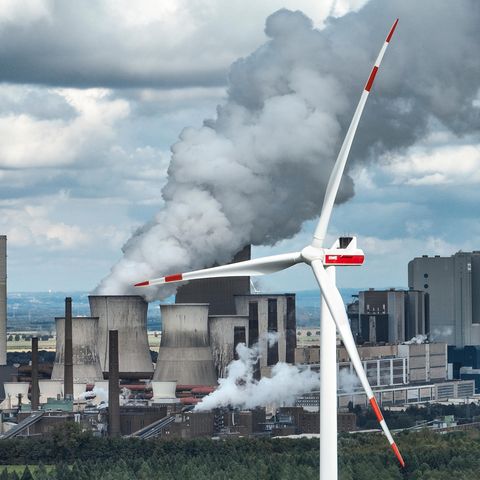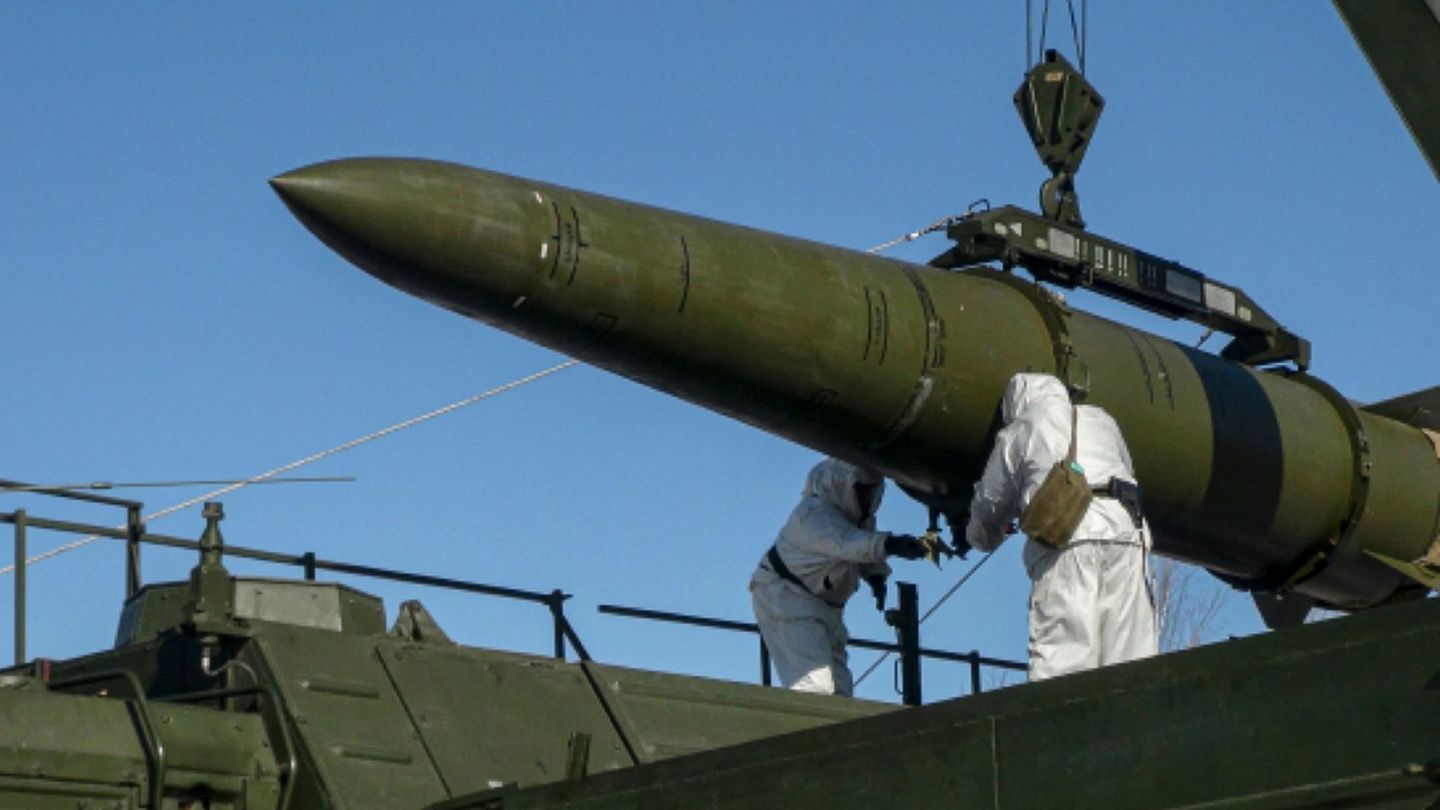COP29 in Azerbaijan
Climate conferences – who needs something like that?
Copy the current link
There has not been a comparable COP since the Paris Climate Agreement. Today the success of that time is crumbling. Expectations in Baku are also clouded. Is the climate summit out?
It’s that time of year again when the world comes together to argue about a perennial issue: climate change. The topic is lengthy, complicated and therefore so stressful for many that they would prefer not to deal with it at all. Especially since disasters have been stringing together for decades, while political successes remain manageable. The 29th climate conference in Azerbaijan started with this pessimistic expectation.
Delegations from almost 200 countries discuss climate debt(s) and who should pay for the damage. Depending on the calculation, up to a trillion dollars per year will be necessary in the coming years and decades to support poor countries in climate protection and adaptation. The question of money is the controversial topic of COP29, which this year is being hosted by an autocratic oil state for the third time in a row – that is also a debate in itself. It is also about the question of how the world can phase out fossil fuels as quickly as possible in order to meet its global climate goals. Because there’s not enough movement there. So little that at the start of the international summit, UN climate chief Simon Stiell felt compelled to add some life to the dirge: global cooperation “not at a dead point” arrived.
How can he be so sure?
The climate COPs are no longer suitable for a zero-sum game
For years, one environmental catastrophe has followed the next, and the time between headlines is getting shorter and shorter. The Paris Climate Agreement, which delegates hoped would save the planet in 2015, has all but failed almost ten years later. Instead, global temperatures are rising at a record pace. The 1.5 degree target will most likely be breached this year. What happens then? A plus of three degrees is considered realistic.
The United Nations has already declared the highest alert level due to climate change. And at the opening of the climate conference in Baku, the Secretary General of the World Weather Organization added some bad news: “The record-breaking rains and floods, the hurricanes that are suddenly becoming rapidly more dangerous, the deadly heat, the unrelenting drought and the terrible wildfires that we have experienced in various parts of the world this year are, unfortunately, a foretaste of our future.”
It’s not just people who believe that an effective climate policy is essential. Nevertheless, this is exactly where a political paradox begins: climate policy is no longer suitable for election campaigns, as the EU and US elections show. Ursula von der Leyen’s Green Deal was voted out. In the United States, climate denier Donald Trump becomes president again. The days of one of the world’s largest economies supporting the Paris Climate Agreement are numbered. Right-wing parties that cling to fossil fuels are gaining strength around the world.
UN climate chief: “Can’t leave Baku without a reasonable result”
Every climate negotiation so far has been a stress test for the global climate. But perhaps the most difficult negotiations in the almost 30-year history of the climate conference are taking place in Baku. The global climate is boiling. The industrialized countries are demanding that China and Saudi Arabia also pay their share of the climate damage due to rising emissions. They refuse.
Expectations for the negotiations in Baku are low. The heads of state of important countries such as Germany, China, the EU, India and the USA have already canceled their planned participation. The reasons may be valid, but in times of climate crisis the cancellations send a devastating signal: climate change is not that important and the international conference is actually dispensable.
The past may prove them right: since the historic summit in Paris, there has been nothing groundbreaking to report from the COPs. In addition, hosts such as the United Arab Emirates and Azerbaijan abuse the international conferences to conduct business. This makes decisions such as phasing out fossil fuels absurd.
And yet observers and scientists emphasize that the climate conference is more important than ever. Because it is the only forum in which the climate crisis can be discussed internationally. Without them, the long-running favorite would probably have been long forgotten. At the same time, it is forcing almost all countries in the world to deal with the problem – even those that have no interest in it.
The best decisions are of no use if everyone can implement them as they wish. Example Paris: Climate researchers criticized the 1.5 degree target from the start. “In the end, it was a global clean bill of health for all countries in the world”said climate researcher Hans-Joachim Schellnhuber, a former Merkel advisor and COP companion from the very beginning, in an interview with star. According to scientists and observers, the fact that there are currently no clear implementation rules and targeted sanctions is a mistake, but one that runs through all the resolutions of previous climate conferences.
Optimists are less critical of the missing rules: “If countries agree on a direction during the COP, even if it is not binding, then this direction will influence the national laws of all states. This is the greatest lever for global change that I know of”said Kai Monheim, who advises states and negotiators at international summits, in . Negotiators in Baku also believe in the power of climate conferences. The conversations might feel distant at times. “But we know this process works. Without it, humanity would be heading for five degrees of global warming”UN climate chief Stiell emphasized in his opening speech and at the same time made it clear: “We cannot leave Baku without a reasonable result.”
Source: Stern
I have been working in the news industry for over 6 years, first as a reporter and now as an editor. I have covered politics extensively, and my work has appeared in major newspapers and online news outlets around the world. In addition to my writing, I also contribute regularly to 24 Hours World.





